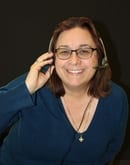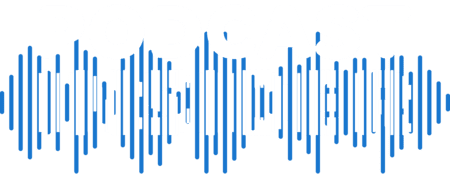 Why are you podcasting? Is your plan to make lots of money so you can retire from your day job? Or is your podcast all about your passion? Do you want to find other people who love your topic too? Podcasting for money is certainly an option but choosing to not monetize your podcast is a valid choice.
Why are you podcasting? Is your plan to make lots of money so you can retire from your day job? Or is your podcast all about your passion? Do you want to find other people who love your topic too? Podcasting for money is certainly an option but choosing to not monetize your podcast is a valid choice.
When people find out you’re a podcaster, there are always two reactions from people who know what a podcast is. (Those people who don’t know what a podcast will get to these questions eventually.) One question is “What’s your podcast about?” and the other one is always “Do you make any money with your podcast?”
If people know anything about podcasts, they know that someone is making lots of money. And that’s true -– the big-name podcasters are the ones who are making a lot of money. The amount of money itself is newsworthy. Who else do you know is making $100 million dollars except celebrities?
Podcasting ROI
When you’re podcasting because of love of your topic, the ROI isn’t return on investment, but return on involvement. It is completely okay not to make money with your podcast.
Choosing to produce a podcast and not monetize is a personal decision. Not everything in our lives produces income. Do we charge to ride our bikes? Go hiking? Bake? Play games? There are things we do just out of love, not expecting a financial benefit. Podcasting could be a hobby just as much as gardening or NASCAR.
When you’re producing a podcast without planning to make money from it, it’s likely that you’re looking for your tribe – the people who want or need what you’re providing. A smart option would be to develop a strong social media presence. A Facebook community where your audience can interact with you and each other will add to your success.
Money or Message?
There’s this concept out there that if you truly believe in your message, you don’t need to be paid for it.
Maybe that’s why you’re not monetizing your podcast. You don’t feel that it’s right to capitalize on what you’re sharing. That’s up to you. Whether it’s religion, personal improvement, or commitment to the world, choosing to spread your message without expecting compensation from either sponsors or patrons does make it easier for people to hear you. Instead of putting your content behind a paywall or expecting patronage from your audience, you extend your reach to a wider audience. And to some degree, people give more esteem to the street preacher because the preacher isn’t motivated by money.
Motivation to Monetize Your Podcast
In the end, choosing to not monetize has many benefits. You’ll meet the people who love what you love, who respect you for putting your message out there regardless of financial support, and you will build a platform to impact the world.
We know that podcasting does cost money, and it’s appealing to think that you can regain it with sponsors or patrons, but getting started with monetization may be as simple as putting affiliate links on your podcast website.
What’s an affiliate link?
You’ve seen them on blogs, videos, and podcasts. An affiliate link is a link to a product or service where you get paid for each person who makes a purchase through that link. Amazon has an affiliate program set up, so if you are recommending a product or a book, you can get a commission on the sale. This type of affiliate marketing isn’t limited to just Amazon. Blubrry has its own affiliate marketing program. If you refer them to our platform and they decide to host their podcast our on servers, we’ll be glad to pay you a commission for that sale.
This type of marketing doesn’t depend on the number of downloads you have. Some websites have requirements for sponsorship but will be glad to offer you an affiliate code that you put in your podcast and on your website.
Be sure to read the contract. These links have some limits in how you publish them. But you may find that you can start monetizing your podcast in this one simple way to start.
____________
 Kim Krajci, host of Toastmasters 101 podcast, has been podcasting for 7 years and writing since the creation of the stylus and clay tablets. She also teaches speech and debate and works as a social media manager.
Kim Krajci, host of Toastmasters 101 podcast, has been podcasting for 7 years and writing since the creation of the stylus and clay tablets. She also teaches speech and debate and works as a social media manager.





